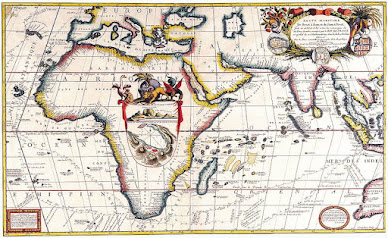Spice Sparked The First Globalization : The pursuit for spices was one of the earliest drivers of globalization circa 200 BC. The flow of spices from one region of the world to another prompted the development of substantial infrastructure on land and along the coast.
This began in the Roman era and continued until the Middle Ages marking the raise to discover new lands and prolonged competition among the colonial powers leading to the very beginning of globalization.
The Spice Road is a network of sea routes that connects East with the West with a distance of over 15,000 kilometers.
They extend from Japan's west coast, through Indonesia's archipelago, through India and into the Middle East, from where they cross the Mediterranean to reach Europe.
Spice trade routes were created and they were not only utilized for the sale of goods and commodities but for the cultural and political exchanges as well.
The Age of Discovery officially began in the early 15th century and lasted through the 17th century.
Vasco da Gama sailed to India in 1498, almost the same time as Columbus and Amerigo Vas Puci sailed from Spain to explore the New Continent which was later known as America.
The period is characterized as a time when Europeans began exploring the world by sea in search of new trading routes, spices, wealth and knowledge.
The impact of the Age of Exploration would permanently alter the world and transform geography into the modern science it is today.
Spice islands, Moluccas and Banda were coveted colonies by the Portuguese, Spain, England and the Dutch.
The World Students Society thanks expo2020indonesia.

.png)


0 comments:
Post a Comment
Grace A Comment!